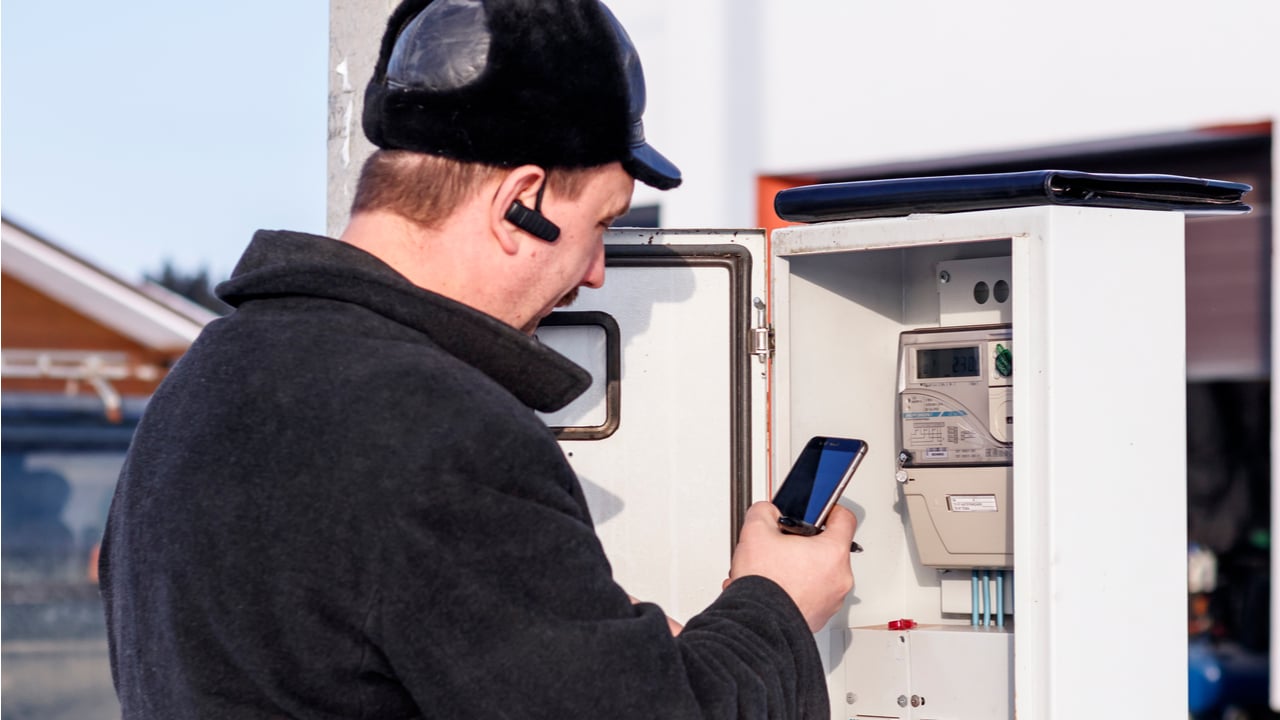 The Central Bank of Russia has added crypto asset holdings of households to its survey of consumer finances. The statistics reveal that Russian families keep more money in cryptocurrency wallets than in gold investment accounts or mutual funds. Russia’s Central Bank Evaluates Cryptocurrency Holdings of Russian Households The Central Bank of the Russian Federation (CBR) […]
The Central Bank of Russia has added crypto asset holdings of households to its survey of consumer finances. The statistics reveal that Russian families keep more money in cryptocurrency wallets than in gold investment accounts or mutual funds. Russia’s Central Bank Evaluates Cryptocurrency Holdings of Russian Households The Central Bank of the Russian Federation (CBR) […] Economist Nouriel Roubini has shared his opinion about bank problems in the United States in a recently published opinion editorial. In the article, Roubini insists that “most U.S. banks are technically near insolvency, and hundreds are already fully insolvent.” Roubini: ‘Liquidity Support Cannot Prevent This Systemic Doom Loop’ The renowned economist Nouriel Roubini, also known […]
Economist Nouriel Roubini has shared his opinion about bank problems in the United States in a recently published opinion editorial. In the article, Roubini insists that “most U.S. banks are technically near insolvency, and hundreds are already fully insolvent.” Roubini: ‘Liquidity Support Cannot Prevent This Systemic Doom Loop’ The renowned economist Nouriel Roubini, also known […]
Currency swap lines have been used during times of crisis in the past, such as the 2008 global financial crisis and the 2020 coronavirus pandemic.
The United States Federal Reserve has announced a coordinated effort with five other central banks aimed at keeping the U.S. dollar flowing amid a series of banking blowups in the U.S. and in Europe.
The March 19 announcement from the Fed comes only a few hours after Swiss-based bank Credit Suisse was bought out by UBS for $3.25 billion as part of an emergency plan led by Swiss authorities to preserve the country’s financial stability.
According to the Federal Reserve Board, a plan to shore up liquidity conditions will be carried out through “swap lines” — an agreement between two central banks to exchange currencies.
Swap lines previously served as an emergency-like action for the Federal Reserve in the 2007-2008 global financial crisis and the 2020 response to the COVID-19 pandemic. Federal Reserve-initiated swap lines are designed to improve liquidity in dollar funding markets during tough economic conditions.
Coordinated central bank action to enhance the provision of U.S. dollar liquidity: https://t.co/Qs4cYY8BFO
— Federal Reserve (@federalreserve) March 19, 2023
“To improve the swap lines’ effectiveness in providing U.S. dollar funding, the central banks currently offering U.S. dollar operations have agreed to increase the frequency of seven-day maturity operations from weekly to daily,” the Fed said in a statement.
The swap line network will include the Bank of Canada, Bank of England, Bank of Japan, European Central Bank and the Swiss National Bank. It will start on March 20 and continue at least until April 30.
The move also comes amid a negative outlook for the U.S. banking system, with Silvergate Bank and Silicon Valley Bank collapsing and the New York District of Financial Services taking over Signature Bank.
The Federal Reserve, however, made no direct reference to the recent banking crisis in its statement. Instead, it explained that they implemented the swap line agreement to strengthen the supply of credit to households and businesses:
“The network of swap lines among these central banks is a set of available standing facilities and serve as an important liquidity backstop to ease strains in global funding markets, thereby helping to mitigate the effects of such strains on the supply of credit to households and businesses.”
The latest announcement from the Fed has sparked a debate about whether the arrangement constitutes quantitative easing.
U.S. economist Danielle DiMartino Booth argued that the arrangements are unrelated to quantitative easing or inflation and that it does not “loosen” financial conditions:
MISINFORMATION PREVENTION MOMENT
— Danielle DiMartino Booth (@DiMartinoBooth) March 19, 2023
Swap lines do NOT constitute loosening financial conditions.
One more example: You're a doctor. A patient is having cardiac arrest. You can SEE the paddles to revive him/her but you can't REACH the paddles. These swap lines HAND you the paddles. https://t.co/RXOPiBmsif
The Federal Reserve has been working to prevent an escalation of the banking crisis.
Related: Banking crisis: What does it mean for crypto?
Last week, the Federal Reserve set up a $25 billion funding program to ensure banks have sufficient liquidity to cover customer needs amid tough market conditions.
A recent analysis by several economists on the SVB collapse found that up to 186 U.S. banks are at risk of insolvency:
“Even if only half of uninsured depositors decide to withdraw, almost 190 banks are at a potential risk of impairment to insured depositors, with potentially $300 billion of insured deposits at risk.”
Cointelegraph reached out to the Federal Reserve for comment but did not receive an immediate response.
 One in every 10 households in six eurozone countries has acquired cryptocurrencies, the European Central Bank (ECB) has found with a new survey. While the richest are most likely to own crypto assets, poor families are not far behind, the poll indicates. Dutch Households Lead in Terms of Crypto Ownership, ECB Survey Shows Every tenth […]
One in every 10 households in six eurozone countries has acquired cryptocurrencies, the European Central Bank (ECB) has found with a new survey. While the richest are most likely to own crypto assets, poor families are not far behind, the poll indicates. Dutch Households Lead in Terms of Crypto Ownership, ECB Survey Shows Every tenth […] The industry organization of Russian energy suppliers has come up with ideas on how to combat cryptocurrency mining in homes, basements and garages. The association believes the phenomenon is the main issue with mining in Russia as authorities prepare to legalize it. Suppliers Move Against Mining With Cheap Electricity The Russian association of energy suppliers […]
The industry organization of Russian energy suppliers has come up with ideas on how to combat cryptocurrency mining in homes, basements and garages. The association believes the phenomenon is the main issue with mining in Russia as authorities prepare to legalize it. Suppliers Move Against Mining With Cheap Electricity The Russian association of energy suppliers […] The federal government in Moscow has permitted regions to determine local electricity tariffs for the population, a measure that will affect crypto mining at homes. Subsidized household electricity in Russia is often used to mint digital currencies in basements and garages. Regions in Russia Granted Permission to Increase Costs for Home Mining Russians mining cryptocurrencies […]
The federal government in Moscow has permitted regions to determine local electricity tariffs for the population, a measure that will affect crypto mining at homes. Subsidized household electricity in Russia is often used to mint digital currencies in basements and garages. Regions in Russia Granted Permission to Increase Costs for Home Mining Russians mining cryptocurrencies […] Authorities in Kazakhstan have calculated the energy used in the country’s crypto mining industry which competes for electricity with other sectors of the economy and households. The government has also estimated the additional supply necessary to meet the growing demand from mining farms and proposed a cap on the power rating of new facilities. Kazakhstan […]
Authorities in Kazakhstan have calculated the energy used in the country’s crypto mining industry which competes for electricity with other sectors of the economy and households. The government has also estimated the additional supply necessary to meet the growing demand from mining farms and proposed a cap on the power rating of new facilities. Kazakhstan […]